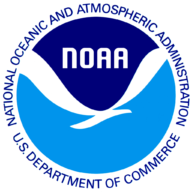NOAA Grant Received to Provide K-12 Teacher Field Course
 The National Oceanic and Atmospheric Administration (NOAA) has awarded Inland Seas Education Association (ISEA) a B-WET (Bay Watershed Education and Training) grant of nearly $75,000 to provide a Great Lakes Watershed Field Course for teachers to learn and implement MWEEs in their classrooms. The project will be ongoing from September 2016 through March 2018.
The National Oceanic and Atmospheric Administration (NOAA) has awarded Inland Seas Education Association (ISEA) a B-WET (Bay Watershed Education and Training) grant of nearly $75,000 to provide a Great Lakes Watershed Field Course for teachers to learn and implement MWEEs in their classrooms. The project will be ongoing from September 2016 through March 2018.
Thirty K-12 teachers will be selected to participate in a 4-day professional development (PD) opportunity in the Grand Traverse region during June 2017 and receive on-going support, resources, and encouragement during the following school year as they implement their meaningful watershed educational experiences (MWEEs). Teachers who live or work in a GLRI Area of Concern will receive priority for the program. “We’re recruiting teachers from Kalamazoo, Saginaw, Detroit area, northern Ohio, Milwaukee, and Green Bay as these are targeted by the Great Lakes Restoration Initiative for having the biggest threats to the Great Lakes ecosystem.” said Fred Sitkins, ISEA Executive Director.
The Field Course PD will include daily hands-on, place-based environmental education experiences, time for reflection and planning, and lodging at Northwestern Michigan College and on the schooner Inland Seas. Sitkins said, “We’re excited about the daily activities for the teachers. In addition to ISEA programming on the ship, teachers will discover practices being employed to prevent and control upland and wetland invasive species, observe reef restoration projects, and learn about the practices local farms utilize to reduce runoff into the Grand Traverse Bay Watershed.” Participants will gain knowledge about MWEEs and how to incorporate them into their curriculum and a stewardship action project. Throughout the school year, ISEA will support teachers as they implement their MWEEs through online forums, resources, and conference calls. A culmination event will be held in February or March 2018 where teachers will share their stewardship action projects.
Participating teachers will be required to complete evaluation surveys before, during, and after the 4-day PD, a stewardship action project progress report during the school year, an evaluation survey at the end of the project, and the B-WET national evaluation. Incentives for teachers to participate include the 4-day PD experience, an ISEA Fall Schoolship scholarship, continuing education credits and/or graduate credit, and a stipend up to $300 to implement a student stewardship action project.
B-WET is a national program that began in 2002. Seven regions across the country are the focus of the program: California, Chesapeake Bay, Great Lakes, Gulf of Mexico, Hawaii, New England, and Pacific Northwest. Each region is managed by a regional coordinator. The Great Lakes region is managed by Cathy Green at the Thunder Bay National Marine Sanctuary in Alpena, MI.